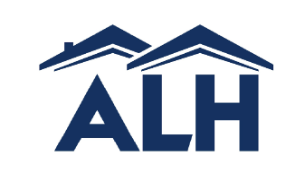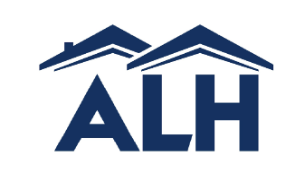Title Page
-
Company name
-
Location
-
Type of business
-
Company representative (name and title)
-
Conducted on
-
Prepared by (name and title)
Introduction
Scope
Confidentiality Statement
-
In order to maintain the integrity and credibility of the risk analysis processes and to protect the parties involved, it is understood that our company and its representatives will not divulge to unauthorised persons any information obtained during this WHS Evaluation unless legally obliged to do so.
Copyright 2024
-
All rights reserved. No part of this document may be reproduced or transmitted in any form by any means, electronic or mechanical, including photocopying and recording, or by an information storage or retrieval system, accept as may be permitted, in writing, by the company.
Section 1 - Injury / Illness Information
-
1. Have any injuries occurred in the past year? (note: this includes minor injuries such as cuts)
-
1.a) What are the most common causes of injury/illness at your worksite?
-
1.b) Will our labour hire workers be working in the areas where there are high rates of injury/illness?
-
Describe these areas
Section 2 - WHS Systems & Processes
-
1. Is there a process in place to proactively identify hazards in the workplace e.g., regular workplace inspections, risk assessments, hazard reports, pre-start checks? TIP: Explain this process, and take a photo, or request a copy of completed workplace inspections, task risk assessments, hazard report form and/or pre-start check as evidence.
-
2. Are there written safe work procedures/safe work method statements or other measures that describes how jobs should be done to ensure safety, and workers are instructed and trained on these? TIP: view safe work procedures/safe work method statements that are applicable to the work labour hire workers will perform. Take a photo of these procedures or request copies.
-
NOTE: if high risk construction work is carried out, a safe work method statement must be prepared before work is carried out
-
3. Is there a process in place to prevent and respond to inappropriate workplace behaviours e.g. bullying, sexual harassment, aggression, violence, under the influence of alcohol and other drugs? TIP: Explain this process and take a photo, or request a copy of the standards of behaviour as evidence.
-
4. Is there a process in place to regularly consult (talk and get feedback) with workers on health and safety? e.g. via toolbox talks, and daily start up meetings. TIP: Explain this process, and take a photo, or request a copy of a completed toolbox talk or meeting minutes where workers are involved in health and safety discussions as evidence.
-
5. For the listed workplace hazards, check if they apply to the worksite. If they do, ensure there are robust safe systems in place. Document how each hazard is managed and validate the effectiveness of these safety protocols.
-
5. a) Asbestos
-
5. b) Confined Spaces
-
5. c) Crystalline silica
-
5. d) Demolition
-
5. e) Electrical
-
5. f) Excavation
-
5. g) Falling Objects
-
5. h) Falls (working at heights)
-
5. i) Fatigue
-
5. j) Hazardous Chemicals
-
5. k) Machinery and Tools
-
5. l) Manual Tasks
-
5. m) Noise
-
5. n) Outdoor Work
-
5. o) Overhead and Underground Powerlines
-
5. p) Remote and Isolated Work
-
5. q) Traffic Management
-
5. r) Mobile Work
-
5. s) Radio Frequency
-
6. Has an emergency plan been prepared for the worksite and includes response procedures for the different types of emergencies that could occur? TIP: take a photo of the site emergency plan, or explain in the notes the types of emergencies covered by the plan, and how this information is provided to workers.
-
7. Are workers provided with a site-specific WHS induction prior to commencing work? TIP: Explain how the induction is delivered to workers, and take a photo of the induction content and/or induction record identifying the content, or explain in the notes what is covered in the induction.
-
8. Are workers provided with instruction regarding Safe Work Method Statements and/or Safe Work Procedures to ensure they complete their tasks safely? TIP: Explain this process and take a photo, or request a copy of the training procedure, training materials or training record.
-
9. Are there any hazards present at the workplace that would necessitate health monitoring for on-hire workers, such as annual checks for crystalline silica exposure or routine hearing tests?
-
Please specify the hazards and the corresponding health monitoring required.
-
10. Is there a health surveillance program in place to monitor the wellbeing of workers exposed to potential hazards, such as RF radiation and electrical risks, including regular medical check-ups and fitness for work assessments? TIP: Provide details about the frequency and type of health checks conducted, and any specific procedures followed to ensure ongoing worker health and safety.
Outcome
-
If you have answered “no” to any of the above mandatory criteria you must esclate to the Senior Leadership Team for review and consideration before the placement of your workers.
-
Is all mandatory WHS criteria satisfied?
- Yes, all mandatory WHS criteria is satisfied
- No, not all mandatory WHS criteria is satisfied
-
Report to the Senior Leadership Team for next steps.
-
Proceed with the Site Assessment
Next Review
-
Next review date Note: the review date is 12 months from the date the site assessment was completed.
-
Set a reminder for the review in JobAdder
Summary
-
Will we proceed with placement?
-
Explain the reasons why we will not proceed with placement.

















